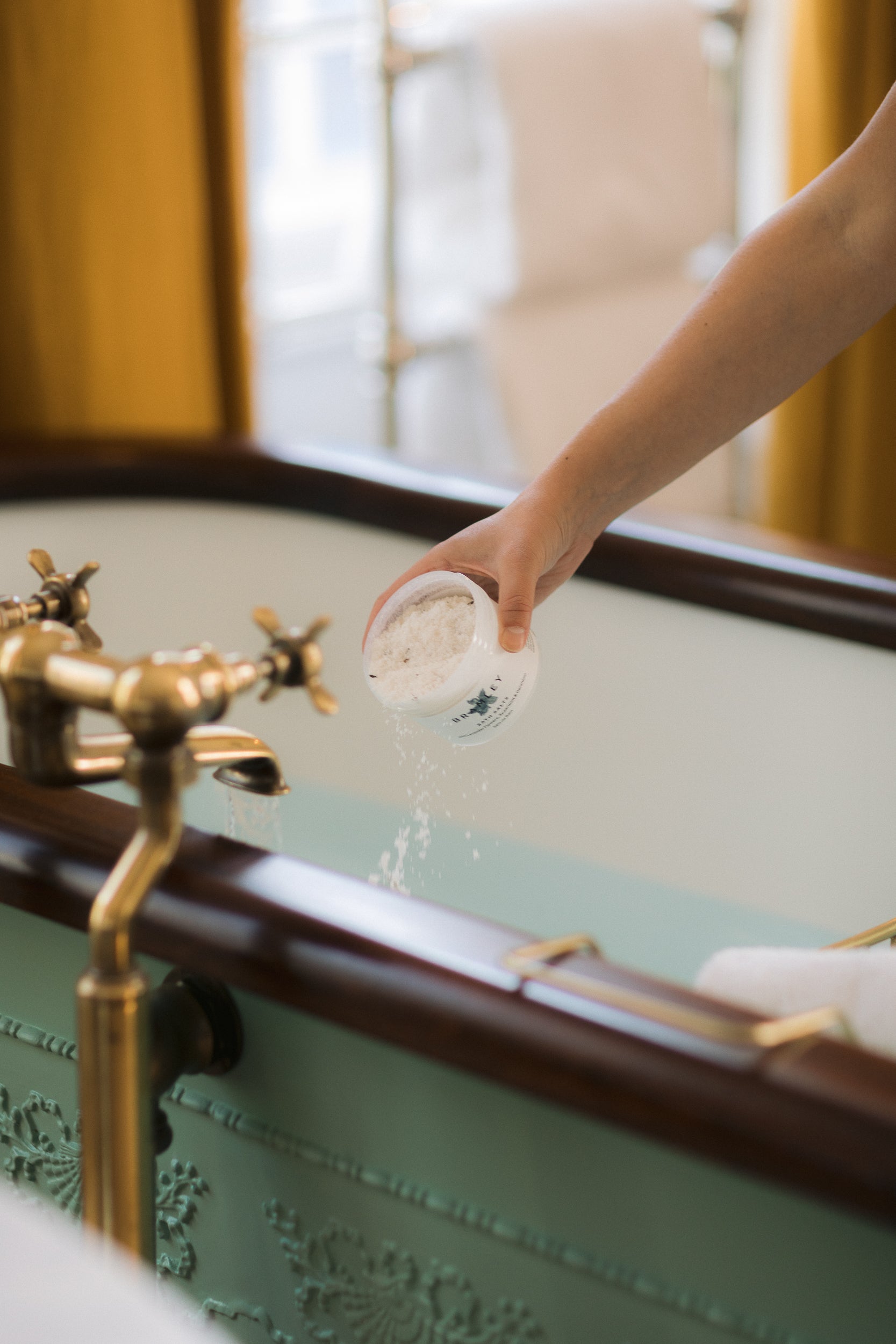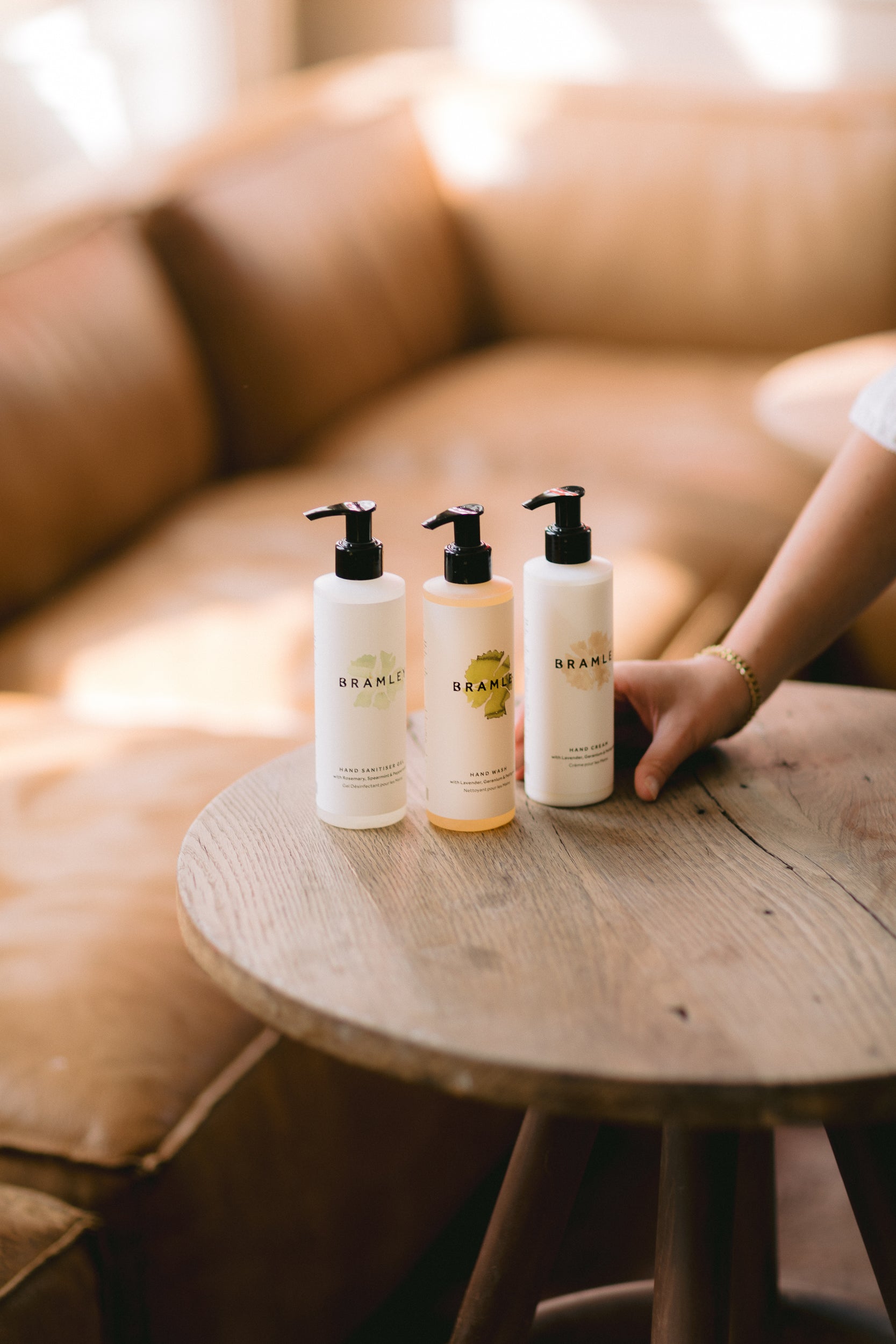World Sleep Day: The benefits of essential oils in your bedtime routine
On World Sleep Day, here at Bramley, we’re considering how essential oils might help us all sleep a bit better...
It has long been know that essential oils have sleep benefits, helping to calm and relax us and allowing us to fall asleep. In these strange times, sleep feels harder to come by for some of us, so a little bit of extra help on that front is wouldn’t go amiss/feels appropriate.
There are a few ways to use essential oils but inhaling is the most common method, usually using a diffuser or a pillow spray, where the oil molecules are dispersed through the air for us to breathe them in. Diffusers offer both soothing effects to help us sleep, and also help to clear our airways, so we can both breathe more easily, falling asleep more easily too.

But how do the essential oils help you actually fall asleep?
When essential oils make their way into our bodies, they have an impact on our olfactory system, the system relating to smell, and limbic system, which is our “emotional brain.” When we inhale, molecules from the essential oils journey to our brains, where they act on the emotional centre of the brain, the limbic system, and one part in particular, the amydgala.
As well as affecting this part of the brain, they also act on the olfactory system, causing our brains to secrete neurotransmitter which can elevate your moods and make you feel relaxed, such as dopamine and serotonin. Serotonin also produces the hormone melatonin, which helps makes us sleepy. So simple, yet utter magic to the ears of those of us who find sleeping difficult.

Which essentials oils are the most commonly used?
There are several essential oils used to aid sleep but the most often used are Lavender and Chamomile. Throughout history these two plants have helped us get our 40 winks. There are others too, valerian, ylang-ylang, bergamot, jasmine and sandalwood to name just some of them.
Lavender works to calm anxiety and offers sedative effects. It may not only help us to fall asleep but may also help in having more time in deep, slow-wave sleep.
Chamomile. Chamomile is known to be calming, reducing stress. Long-used as a relaxant, the sedative effects may be due to apigenin which binds to benzodiazepine receptors.
Valerian has been shown to reduce anxiety, which can help us to fall asleep and stay asleep longer.
Ylang-ylang is also known as a sedative and can have calming effects to relieve anxiety.
Jasmine has been shown to help improving the quality of your sleep.
Sandalwood Sandalwood oil can aid in relaxation and is also known to have sedative effects.
Bergamot Bergamot oil can lower our heart rate and blood pressure and help stress.
Whether you think you’d like a pillow spray, or a diffuser, there’s seems no better time to turn your nose to one than on World Sleep Day.
Our Pillow Spray and Calm Balm, full of the delicate scent, honesty and effectiveness of Lavender, chamomile and yarrow, might be just the place to start.













